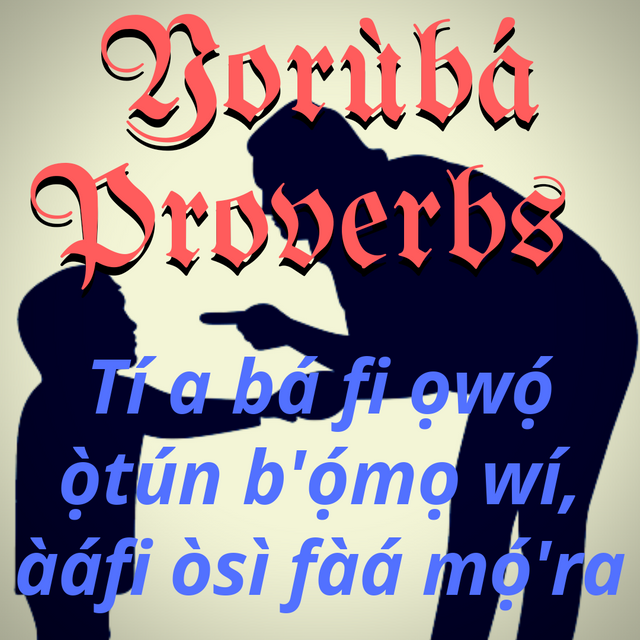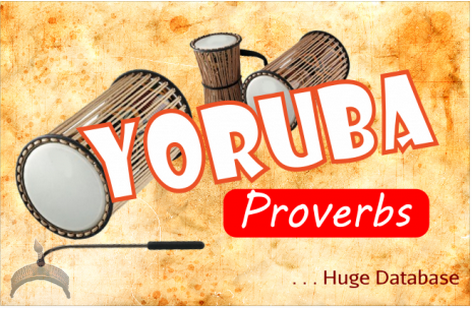Fridays are known generally for heralding our indigenous ways of life, especially in dressing and music. This is why I, as an indigene of the Yorùbá tribe presents Yorùbá Proverbs. In this post, I present a yorùbá proverb, it's literal interpretation and it's meaning and significance to the yorùbá people, and at times, Africa at large. The Yorùbá people predominantly live in the South Western part of Nigeria, and they speak the Yorùbá language. The theme for today's proverb is discipline, love and forgiveness

Created Using Canva
Tí a bá fi ọwọ́ ọ̀tún b'ọ́mọ wí, àáfi òsì fàá mọ́'ra
Literal Interpretation
When we punish a child with the right hand, we draw him close again with the left.
In most African communities, the conventional way of punishing children when they commit any offense is to beat them with cane or tell them to serve some painful punishments. The moral behind this is that the physical pain that will be felt by the child for some time will always remind him that what he did is wrong and will be punished again whenever it is repeated. Parents therefore have different painful styles of punishing their children.
"Spare the rod and spoil the child"
Spare the rod and spoil the child"Some parents beat with their palms (which is widely opposed), some use sticks or canes, some belts, and so on. Other forms of punishment are to make the child take a sitting or standing posture that makes parts of the body suspended and which makes such body part heavy within a short period. This physical punishments leave visible marks or painful body parts which are felt on the body for days.
Care is however always taken by reasonable parents to ensure that children that are being punished for a wrongdoing do not get to hate them because of the punishment. The proverb teaches punishment in love. This means when a child is punished for any reason, such a child should be told what his wrong is and why it is bad or why it is an offense. This punishment should however be mild, and not such that will drive the child away, or that will cause injury for the child.
The proverb is commonly used to persuade an elder who has been gravely offended by a younger person (sometimes, much younger) and who has refused to forgive the offender, or has promised never to have anything to do with such a person anymore. The proverb teaches love, discipline, as well as forgiveness. It encourages peace and harmony in a community, rather than quarrels, strife and turmoil.
To err is human, but forgiveness is not only divine; forgive all wrongs for a healthy life, for better relationships and for a peaceful and progressive community...

Image Source
Please drop your contributions about this proverb in the comment section. I will love to know your views.
Hello! I find your post valuable for the wafrica community! Thanks for the great post! We encourage and support quality contents and projects from the West African region.
Do you have a suggestion, concern or want to appear as a guest author on WAfrica, join our discord server and discuss with a member of our curation team.
Don't forget to join us every Sunday by 20:30GMT for our Sunday WAFRO party on our discord channel. Thank you.
Downvoting a post can decrease pending rewards and make it less visible. Common reasons:
Submit